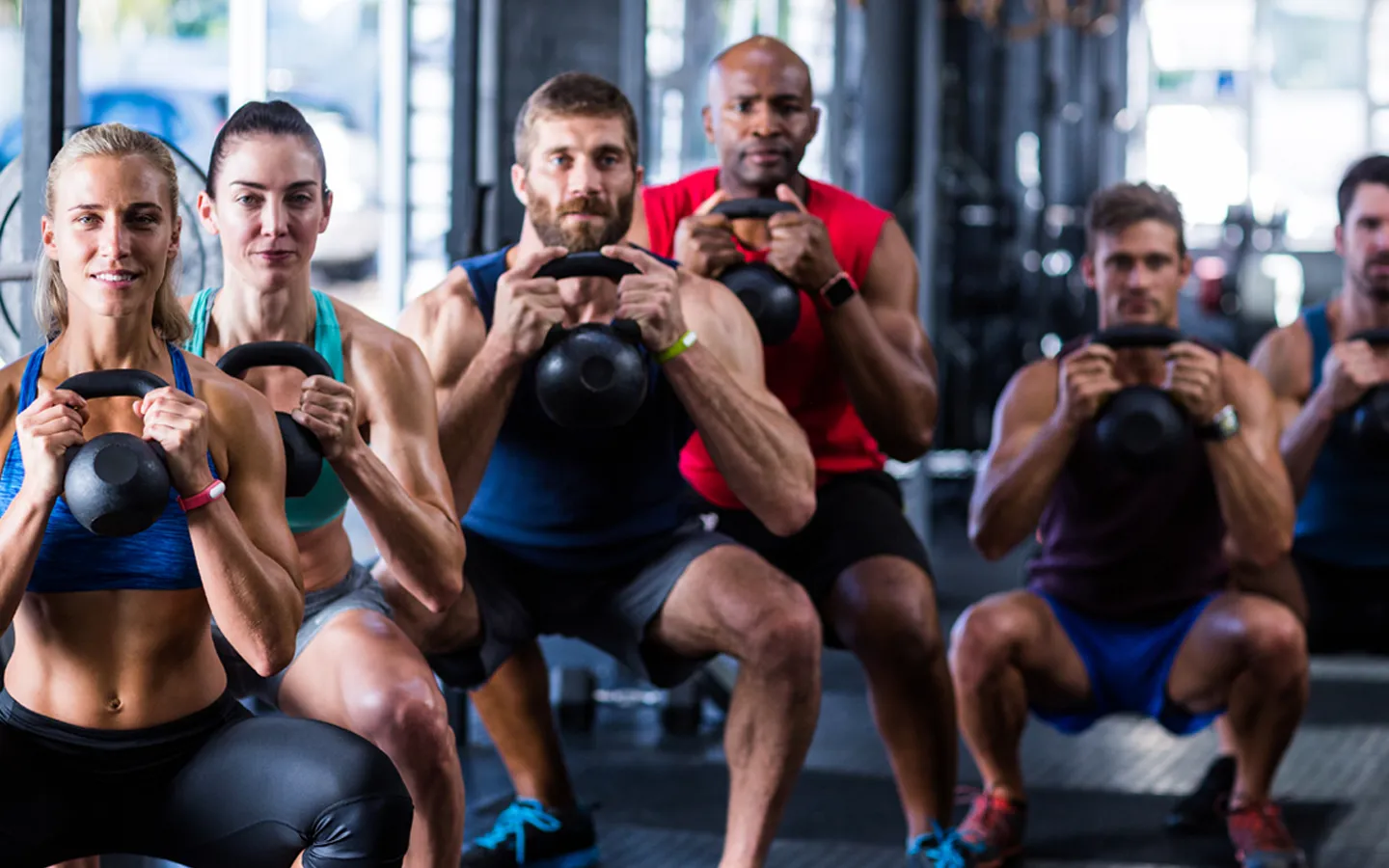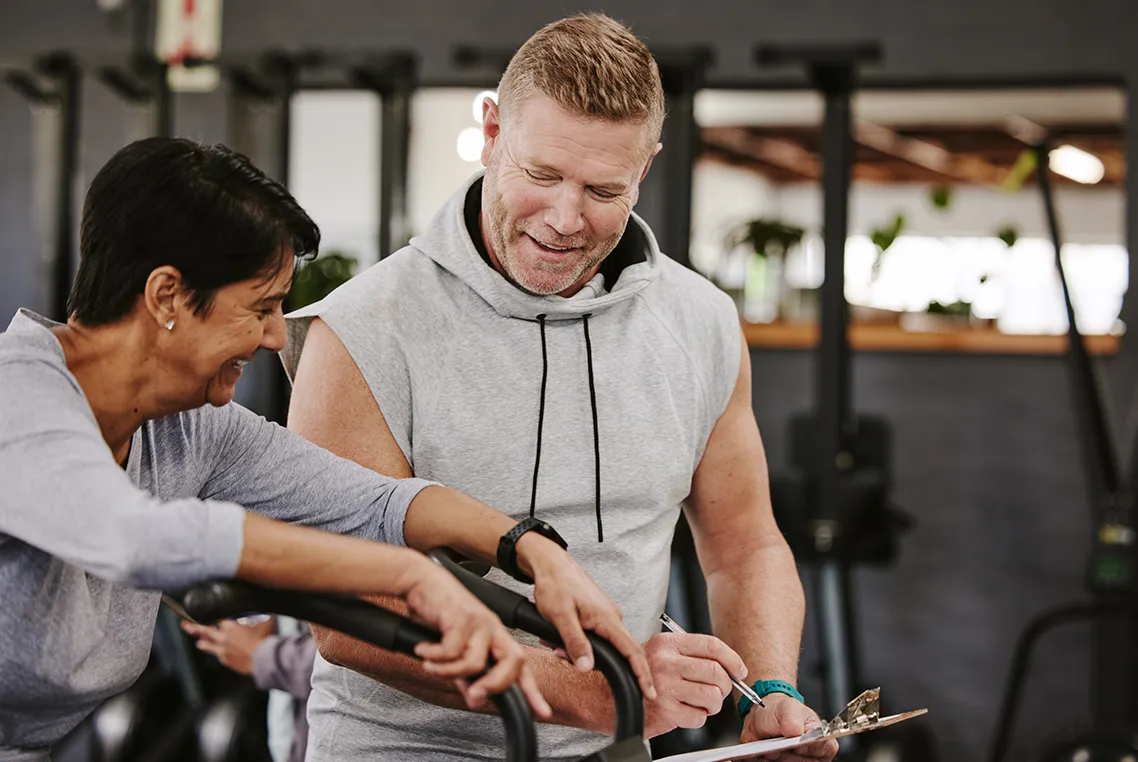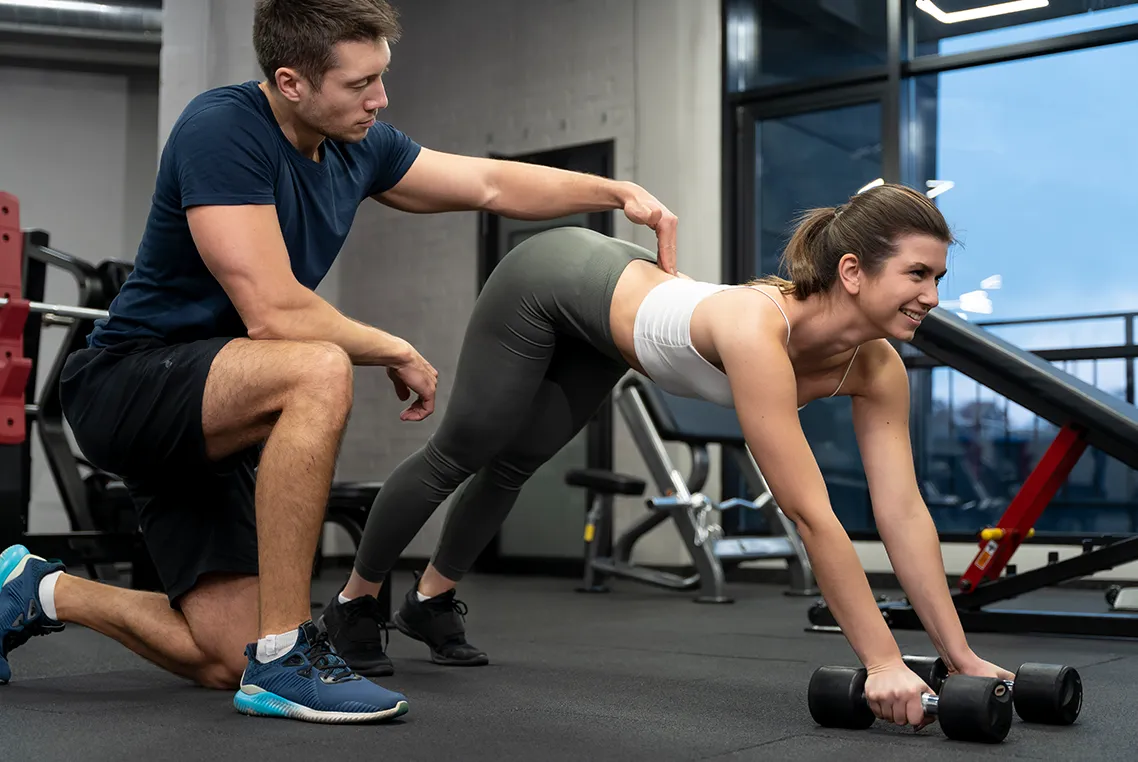
Fitness instructor courses are always in high demand, so it’s no surprise that they are widely offered in Ireland. This is great news for you if you want to become a fitness instructor, as there are loads of courses to choose from.
But what exactly are your options? What do you need to enrol in the course? Which one is right for you? We know that you have many questions. This is why we’ve put together this comprehensive guide that covers everything you need to know about fitness instructor courses in Ireland so you can get started on your new career!
There are several types of fitness instructor programmes that you can take in Dublin, Cork, and elsewhere in Ireland. These courses are categorised based on competency levels, mode of delivery, and duration.
Under this category, you have basic and advanced programmes.
Basic fitness instructor courses provide you with the general knowledge and skills needed to prescribe exercise to the general public. They include anatomy and physiology, exercise science, nutrition, and other topics related to safe and effective exercise instruction. These courses equip you with the competencies needed to work as a fitness instructor in health clubs or gyms.
Advanced courses are more in-depth and designed to train you in teaching specific types of exercise classes like strength and conditioning, kettlebell training, and exercise for older adults. Moreover, they provide you with more specialised knowledge about training clients for specific goals like weight loss or athletic performance rather than just general fitness. You can take this course to become more qualified or get a new certification.
Simply put, basic or entry-level courses are designed for people who are just getting started in the health fitness industry, while advanced courses are for those who want to take their skills to the next level.
There was a time when health fitness courses were taught only in a classroom setting. However, over the years, training centres started offering online courses. Just recently, blended learning, a mixture of in-person and online classes, was adopted by many schools.
Both classroom-based and online courses have advantages and disadvantages. For one, Internet-based programmes offer convenience and enable students to save time as they no longer have to travel to attend classes. However, they tend to fall short when it comes to practical training. On the other hand, in-person courses provide stronger hands-on training, with students practising in front of their instructors and receiving immediate feedback. But they require more time as you need to travel to attend the classes.
These concerns prompted training centres like the NTC to choose blended learning. In these programmes, the theory part is delivered online, while the practical aspect is done onsite. With this approach, you enjoy the benefits of online and classroom-based courses.
The requirements vary per course and training centre. It also depends on the level of qualification that the programme offers. Most educational institutions in Ireland require applicants to have prior qualifications before enrolling in a Level 3 or Level 4 course. However, there are trusted training centres that do not implement this.
For example, the National Training Centre’s Level 4 Fitness Instructor Course is open to anyone, including those without any experience or certification in the health fitness industry. It is one of those rare courses in Ireland designed for entry-level learners but offers the highest level of qualification for fitness instructors in Europe.
Meanwhile, you need to hold a primary qualification to be eligible to enrol in most specialised or advanced fitness instructor courses in Ireland. If you intend to take up any of these courses, it is best to check with the course provider what the eligibility requirements are and if your qualification is accepted.
You can ask people you know if they can recommend a good programme. You can also use the Internet to find several options quickly.
Regardless of the method you use, it is essential that you learn more about the programme and school. Go to their website and learn pertinent information about the course, such as its accreditation and content. Also, check out the training centre’s ‘About Us’ section to learn about their history. Moreover, read about testimonials from previous students.
Visit forums and online business directories to read more reviews about the programme and school. The information posted on these sites should give you an idea of the quality of education you would get.
Just a reminder when checking out online reviews:
Be critical, as not everything posted on the Internet is accurate or true. Moreover, don’t look for a training centre or programme with only positive reviews as this is impossible. Your goal should be to find a course which has been consistently lauded as a great programme – one that’s said to have prepared students for the demands of a fitness instructor job.
It can be overwhelming to see the various options available. The truth is that the sheer number of choices can actually make it harder for you to choose which one to enrol in. So, what should you do in this situation?
Well, you can start by identifying what your purpose is in taking the course. If you are earning a primary qualification, then focus on checking out basic or entry-level courses. Meanwhile, if you want to improve your knowledge and skill, identify an area of specialisation – indoor cycling, suspension training, pre and post-natal exercise, etc.
Next, consider the location and schedule. Ideally, pick one near you so you wouldn’t have problems getting to class. Also, choose a course with a schedule that is manageable. If you are working or caring for your children, an intensive course may not be right for you as it will require a lot of your time.
Of course, don’t forget to check the fees. But don’t pick a course just solely on its price. Remember, quality education doesn’t come cheap. So, don’t be tempted to enrol in a course just because of its low price.
Lastly, factor in the reputation of the programme and school. On top of being well-designed, the course should be accredited by a reputable organisation. Meanwhile, the school should have a proven track record for providing quality courses taught by experienced tutors.
As you can see, there are many options available for fitness instructor courses in Ireland. Whether you want to become a personal trainer, improve your knowledge, or specialise in an exercise discipline, there’s something out there for you. It’s just a matter of finding the course that meets your needs.
Do you want to be a certified fitness instructor? Or do you want to teach a specific exercise or cater to a particular group of people? We’ve got exactly what you need! Call us today on 01 882 7777or click here to learn more about our sought-after basic and advanced fitness instructor courses in Ireland!


ONSITE LESSONS
Practical classes take place either at NTC or SPORTSCO, Ringsend, Dublin 4
Saturday from 10:30am to 1pm and 2pm to 4:30pm
July 2025 – 26th♦
August 2025 – 9th, 16th, 23rd, 30th
September 2025 – 6th, 13th, 20th, 27th
October 2025 – 4th, 11th, 18th♦, 25th
November 2025 – 1st, 8th♦, 15th, 22nd, 29th, 30th
December 2025 – 6th & 7th
Examinations and/or class will start at 9:30am on dates indicated with ♦
ONLINE LESSONS
Tuesday and Thursday Evenings from 7pm to 9pm
(Recordings available afterwards)
July 2025 – 29th, 31st
August 2025 – 5th, 7th, 12th, 14th, 19th, 21st, 26th, 28th
September 2025 – 2nd, 4th, 9th, 11th, 16th, 18th, 23rd, 25th, 30th
October 2025 – 2nd, 7th, 9th, 14th, 16th, 21st, 23rd
OPTIONAL FREE COURSE
National Qualification in Kettlebell Training
November 2nd, 2025 – Sunday from 10:00-17:00